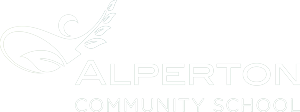On Wednesday 3 July, our science teachers Dr Mahmoud and Ms Khalil accompanied a group of our Year 10 students to the UCL main campus in Euston to take part in the final conference of the UCL’s ORBYTS educational programme.
Since January, the students attended the “UCL Quantum Club”, an extracurricular science club organised and led by Dr Mahmood, as part of the ORBYTS study programme, which allowed students to work with academics and get involved in a real research project. During the workshops, the students were joined by Dr Robert Banks from the UCL, who introduced them to quantum computing and worked with them on finding possible solutions to the intriguing “max-cut” problem.
The trip to the UCL campus allowed students to share their work with other schools and discuss their research.
The day started with a tour of the campus, followed by presentations delivered by all participant schools. The students also prepared posters summarising their work, which were displayed in the main hall, akin to how PhD students and academics share their work with the global research community.
Our students were divided into two groups: one group stood next to their posters and answered questions about their work, whilst the other group walked around and inspected the rest of the posters created by other schools and asked questions about their projects. The groups then swapped around.
After lunch, students took part in a keynote talk delivered by Dr Dunn, which helped them gain a better understanding of what academic research entails. A second keynote session was delivered by Dr Jones, who took part in the same programme of study at the UCL in 2015. She talked to the students about her educational journey and how she embarked onto studying Biochemistry, followed by a PhD in neuroscience. Dr Jones is now moving to the Max Planck Institute in Germany for a postdoctoral position.
At the end of the talks, students took part in a QA session. They asked Dr Jones how the ORBYTS program supported her PhD study and they were also curious to find out what inspired Dr Dunn to research T helper cells.
Please see below a tweet from the ORBYTS organisers praising our students for their brilliant presentation!
Students from @AlpertonCS looked at maximising the efficiency of continuous-time quantum walks! This is some hard stuff but these students managed to explained it clearly to me! Thank you and amazing work! ✨#OrbytsConference2024 pic.twitter.com/T9uvL2wxNm
— Orbyts (@Orbyts1) July 3, 2024
We are very grateful for the numerous opportunities offered this year by our Science department to all our students across the school from Y7 to Y13, as part of the enrichment and extracurricular program in science, which allowed students to expand their knowledge, engage with academic research and get a better understanding of what careers are available in this field, which hopefully will further motivate students to pursue science in their future studies.

